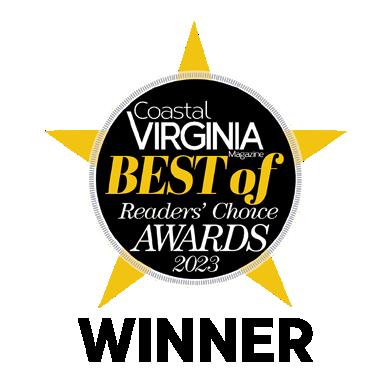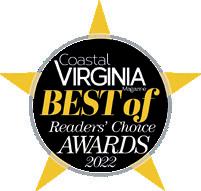BUSINESS




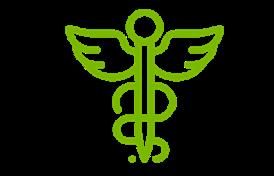


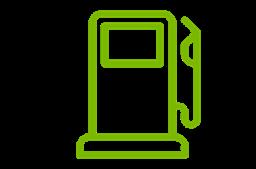



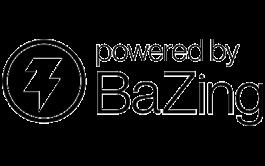
Editor’s note: Back in ‘the olden days’ it was practically expected that children would work in their parents’ business or profession when they reached adulthood. The nature of the business didn’t matter – from a mom-and-pop shop to an insurance office to medicine to law – and seemingly everything in between. Not so anymore. When it does happen, however, it’s worth noting and writing about.
In Jewish Tidewater, we have several fortunate parents who work alongside their adult children, as well as with other families.
Stephanie Peck
Operating a business can be hard work. Decisions related to finances, employees, and procedures are not for the faint-of-heart. Add a family member to this mix, and the daily grind can become more complicated with differing opinions, changes in technology, and a desire for a new work-life balance.
Three multi-generational businesses are profiled in this special section, and they all seem to agree on one operational faux pas: no shop talk during family time.
Recognized around town as the guys in the TV commercials touting their One Hour Heating & Air Conditioning business, Ryan Kletz joined his dad, Todd Kletz, at work in 2008. Theirs is a story of appreciating the strengths of each other’s generational skills and norms.
Todd Kletz
One Hour Heating & Air Conditioning
Residential Sales, Service and Maintenance of Home Comfort Systems
Jewish News: How do you collaborate professionally with your son?
Todd Kletz: Our business was founded in 1979, and Ryan joined our team in 2008. After several years of entry level and mid manager positions, he ascended to a leadership position around 2010. As part of the management team, he was included in our daily/weekly managers meeting where he watched, listened, and learned. That continued until several years ago, when he assumed the role of general manager. At that same time, I relinquished most of my daily responsibilities. A good portion of our collaboration from the beginning has been done in a more informal setting, usually involving conversations on business philosophies and specific operational challenges, as well as long range goals and aspirations for the business as well as us as individuals.
JN: Do you find generational differences in the operation of One Hour Heating & Air Conditioning? If so, what are they?
TK: First, communication style. I adapted to email quickly, finding it to be useful in both my internal and external communications. I still have not embraced texting, however, to the extent that Ryan and his team has as a preferred method of communicating.
Second, work ethic and attitude. For the most part, Ryan’s work ethic aligns with mine; however, he has cautioned me through the years that our work force tends to emphasize work-life balance, often prioritizing flexibility and purpose over traditional notions of loyalty and hours worked.
Third, technology. Ryan and his team are quick to embrace new tools and platforms while I am more cautious.
JN: What have you learned from each other?
TK: Working together reinforces shared values about hard work and responsibility. Additionally, we have learned about each other’s strengths, appreciated the different perspectives, and gained a better understanding of cooperation.
JN: What advice would you give to other family members who work together?
TK: The primary focus should be on shared goals that benefit the organization. Encourage honest communication but recognize that there ultimately needs to be a well-defined process of making major decisions. Clearly outline each person’s responsibilities. Acknowledge the need to separate work and family time and avoid family dynamics that can undermine work relationships.
Ryan Kletz
One Hour Heating & Air Conditioning
Residential Sales, Service and Maintenance of Home Comfort Systems
Jewish News: How do you collaborate professionally with each other?
Ryan Kletz: There is a ton of communication, mostly via quick emails; however, phone calls and in-person meetings are not out of the question. I have over 45 years of business knowledge just an
email away. How lucky am I?
As we make decisions, I like to think there aren’t any key decisions which haven’t been vetted through the other person. Our team in general is a collaborative effort, so seeking others’ opinions on key decisions is something that is not unique for anyone on our team. I just have the luxury of having him (Todd) as one of my points of reference.
JN: Do you find generational differences in the operation of One Hour Heating & Air Conditioning? If so, what are they?
JN: What have you learned from your father?
RK: I consider my father to be the smartest businessman I have ever personally met. When you have a direct line to the person you hold in such regards, what I have learned is endless. While some of the biggest takeaways are fundamental business principles, watching him live them and instill them in our team has been my foundation.
There simply is not enough time or space to list individual things I have learned from him.
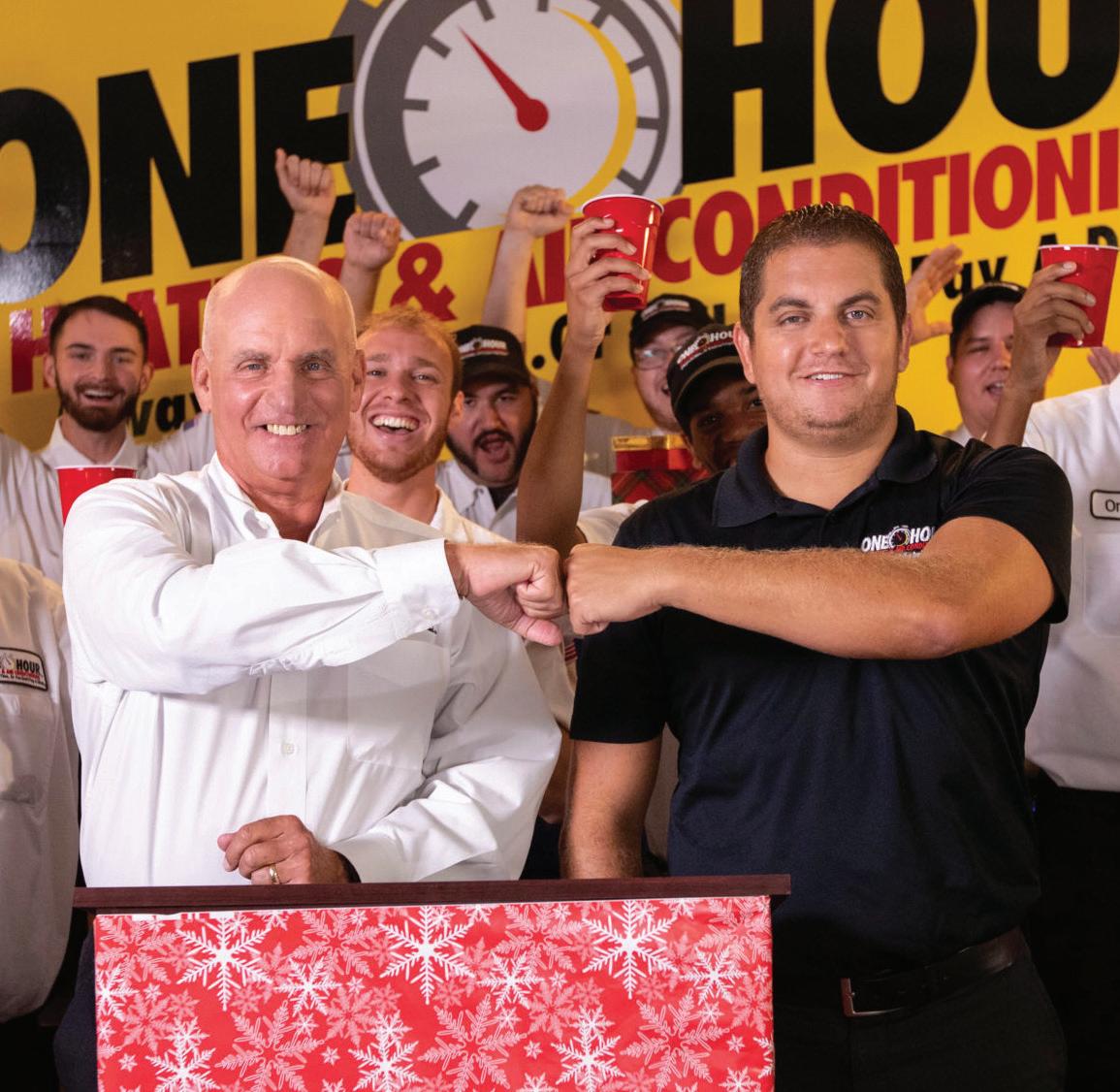
RK: I don’t think that there is any way that there are not generational differences, simply because, well, we are from different generations. Culture has changed over the years. Values have changed over the years (time off for our team is of more value than money at times). As a business, we would be unfair to our team and our customers if we didn’t evolve.
All these things can be a challenge to adapt to. However, our core remains the same. We look to serve our customers, our teammates, the stakeholders of the business, and the community.
JN: What advice would you give to other family members who work together?
RK: “Oy vey” would be a great place to start!!! Family business is a challenge. I currently work with both of my brothers -in-law as well. Whether it is my dad or my siblings, a quote for family business that I like to use is “the highs are higher, and the lows are lower.”
It has been a constant learning process on how to separate business from family. My advice would be, from day one, to focus on separation of those two things.
When Charlie Nusbaum joined S.L. Nusbaum Insurance Agency, his parents were both working at the agency. Now, his sons, Michael and Stephen, are part of the TEAM – from generation to generation.
Charles S. Nusbaum
S.L. Nusbaum Insurance Agency
Business and personal insurance and employee benefits
Jewish News: How do you collaborate professionally with your sons?
Charlie Nusbaum: My simple advice is always work harder than anyone else in the agency; your name is on the door so act accordingly. I refer back to many things both of my parents taught me, because I was fortunate to have both in the business. Good and open communication is the key to all successes. I am more of a coach, giving examples of previous situations that occurred. The one thing I can improve is stopping when one of the team has a question. It’s not always a job, but an adventure. Make work fun and inclusive. Keep smiling.
JN: Do you find generational differences in the operation of Nusbaum Insurance? If so, what are they?
CN: Yes, there are definitely generational differences, but I am not deaf to learning new things. I learned this from my father and mother. I remind my children and the staff that we always can do better. The next generation definitely works differently and implements even smarter ways to complete their tasks than I have been trained.
JN: What have you learned from each other?
CN: I am not the best teacher at the beginning. Thus, we delegate to others who do it much better, and as they get more understanding of the operation,
I spend more time talking to them about managing the business and managing the people – the insurance company personnel, our team, and the clients, both future and current. I am better with them after they’ve learned some things, and then I can use more concrete examples of things that we’ve done in the past.
JN: What advice would you give to other family members who work together?
CN: The advice I give is always respect the prior generation, and what they have learned, and how they have done things. My wife has been very good about pushing separating business from family. I have not been that good, and the kids remind me occasionally it’s family time. We are a family business, but we want to make sure our clients are taken care of 24 hours a day. Another area is knowing and admitting everyone’s strengths and weaknesses. Learn from the best in each area.
I am consistent in pushing the TEAM approach in business, family life, and organizations. TEAM meaning Together Everyone Achieves More.
Michael Nusbaum
S.L. Nusbaum Insurance Agency
Business and personal insurance and employee benefits
Jewish News: How do you collaborate professionally with your father and brother?
Michael Nusbaum: Charlie, Stephen, and I serve in different roles, so there is quite a lot of collaboration to help our clients best. Stephen serves as our claims liaison, so when one of my clients suffers a loss, I heavily rely on him to help get them repaired and reimbursed as quickly as possible. Charlie’s expertise is immense, so leaning on him to navigate more complex coverages is a tremendous resource. He will also direct any referrals he receives to me to help facilitate the coverages needed.
JN: Do you find generational differences in the operation of Nusbaum Insurance? If so, what are they?
MN: Plenty of generational differences arise in our industry. Some of them center around technology literacy and trying to navigate systems from our carriers. When COVID hit, I think there was also a difficult adjustment to having the staff work from home and, similarly, once we transitioned to a hybrid work environment. Thankfully, any of the issues we had or may have tend to be quickly diffused with a conversation.
JN: What have you learned from each other?
MN: The lessons I have learned from my father are innumerable; I joined the firm very green to the insurance world, and
Charlie helped me manage the firehose of information you are trying to learn and implement. Stephen’s perspective and experience in the claims realm is vital to serving our primary purpose of getting our clients back on their feet after a claim.
JN: What advice would you give to other family members who work together?
MN: Like our founding fathers said, make sure there is a separation of church and state. While it may be easy to delve into “shop talk” when together at family functions, try your best to save those conversations for a work environment and focus in the moment on the family around you.
JN: Additional comments?
MN: I am incredibly grateful to get to work with my brother and father and the rest of our amazing team each day. The cohesiveness that we illustrate daily is inspiring.
Stephen Nusbaum
S.L. Nusbaum Insurance Agency
Business and personal insurance and employee benefits
Jewish News: How do you collaborate professionally with your dad and your brother?

Stephen Nusbaum: My role at the agency is unique, as I manage all claims, encompasssing both personal and commercial lines. I am constantly working with both account managers and producers as the claims process ebbs and flows with each scenario. I am constantly giving updates and asking questions of the producers, As we have been preparing for the transition of leadership, Michael and I have been working closely to make sure that not only the two of us are as prepared as possible but that the Agency as a whole is going to be put into a position to succeed.
JN: Do you find generational differences in the operation of Nusbaum Insurance? If so, what are they?
SN: There are notable generational dif ferences in the operation of the Agency. When we transitioned leadership from my grandparents to my father, there were changes, and as the third generation prepares to assume leadership, further changes are already underway. Most of these changes are systematic, aimed at enhancing efficiency and streamlining processes. A key focus for us is to ensure that, while implementing these systematic changes, we remain true to our core values as an Agency and do not compromise the foundation we have built.
JN: What have you learned from each other?
SN: Working with my dad and my brother, there is over 50 years of experience to learn from. I am constantly asking questions about different things and how to handle them. The beauty of insurance is that there is always something new to learn. Things are always changing, whether it’s a new claims scenario or a new start business. That’s what makes it fun and interesting, always learning something new.
JN: What advice would you give to other family members who work together?
SN: Enjoy it. I know that may be hard sometimes, given it is tough to separate work and personal life. But I am truly grateful to have a strong relationship with both my dad and my brother. We work well together. We try to establish boundaries when we have to turn the work off if we are on vacation or something.
Afamily-owned and operated business for more than 80 years, Ronnie Brooke and his cousin, Todd Goldman, keep the communication lines open and always find something to laugh about.
Ronnie Brooke Southern Packing Corporation
RB: Well, it’s not an easy task these days. So many external factors in the world. We work with so many different personalities (referring to our employees). You must depend on each other and let cooler heads prevail. At the end of the day, you want to be able to have a nice conversation and still

be able to get together for a family dinner. In reflection, as I get older, it’s been a good experience. But as anyone knows, in a family business, it’s hard to shut it out completely. It’s what you do every day. It stays with you. I’ve worked hard, but I’ve been fortunate to work with a good family!
Todd Goldman Southern Packing Corporation Wholesale Meats
Jewish News: How do you collaborate professionally with your cousin?
Todd Goldman: Our whole business is a collaboration. Whether it be the buying
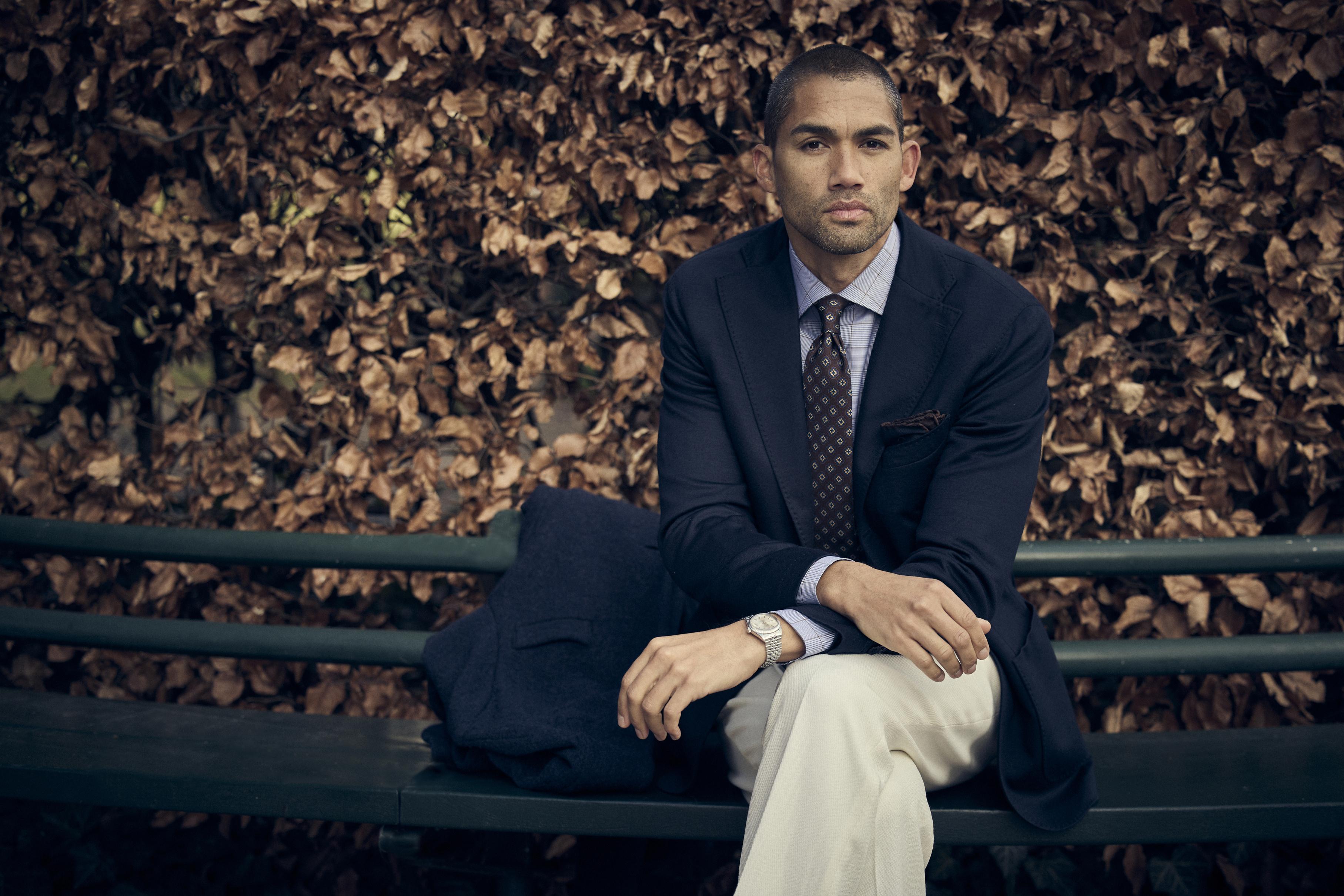



Since 1984, Tidewater Jewish Foundation has worked with professional advisors and helped fundholders distribute over $200 million in charitable dollars.
Working closely with advisors from the legal, accounting, insurance, wealth management and investment fields, Tidewater Jewish Foundation helps individuals and families reach their charitable goals, all while enjoying significant tax benefits, and at no cost to you or your client.
We are here to make giving easy. If you are a professional advisor, we encourage you to explore all the tools and resources available on our website, and welcome the opportunity to connect to discuss more ways we can help you serve your clients in the Tidewater Jewish community.

or selling of products, repairs or purchases of equipment, or most importantly, issues with employees, we discuss everything first. Most, if not all, decisions here are made jointly.
JN: Do you find generational differences in the operation of Southern Packing? If so, what are they?
TG: I am fourth generation here at Southern so, yes, there were huge generational differences when I first started. It was myself, Ronnie, my grandfather, Hyman, and two great uncles, Leonard and Benny. The largest difference was technology. We didn’t have computers when I came here, so getting used to doing things the “old school” way took some time. As the older generation retired, the differences dwindled, and I was able to make some changes.
JN: What have you learned from each other?
TG: I have been in the food business since I graduated college in the 90’s but never on the direct sales side. Basically,
everything I know about meats has come from Ronnie. He was also instrumental in teaching me what to expect when dealing with employees or when working along with the rest of the family. Most of this business is learned by trial and error; however, Ronnie did help with suggesting which customers to call on at first and how to handle pricing with each type of customer.
JN: What advice would you give to other family members who work together?
TG: Leave work at work. Even though at family gatherings it always comes up and it’s hard not to talk business, everyone needs a break. Always keep lines of communication open.
JN: Additional comments?
TG: It was an honor when Ronnie came to me 20 years ago and asked me to come into the family business. I have friends who are in family owned or run businesses, but none that can say they are fourth generation.
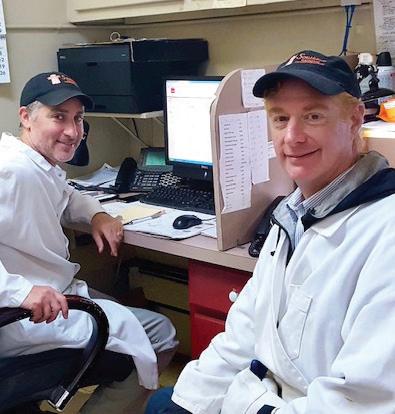
Stephanie Peck
Start spreading the news…Ess-a-Bagel has made its way from New York to Tidewater.
Baker’s Crust Bagel, a new concept by restauranteur John Stein, is now open at The Shops at Hilltop. The eatery features a full menu of Ess-a-Bagel bagels, deli sandwiches, and Three Ships Coffee, along with side options, including pickles, coleslaw, and assorted salads and desserts.
by an Austrian Jewish baking family, Ess-a-Bagel has a loyal following in New York and beyond. For Baker’s Crust Bagel, Ess-a-Bagel’s bagels are mixed, hand-shaped, and boiled in New York –but baked in Virginia. “It’s an authentic New York bagel,” Stein says.
The Hilltop location is a bit different from the old-style New York deli, Stein points out. He purposely designed the location to be a brighter, happier space. Bagels are not the only menu item fashioned from New York; the pastrami comes from Carnegie Deli (cooked on-site), and the belly nova is sliced thin like Katz’s Deli.
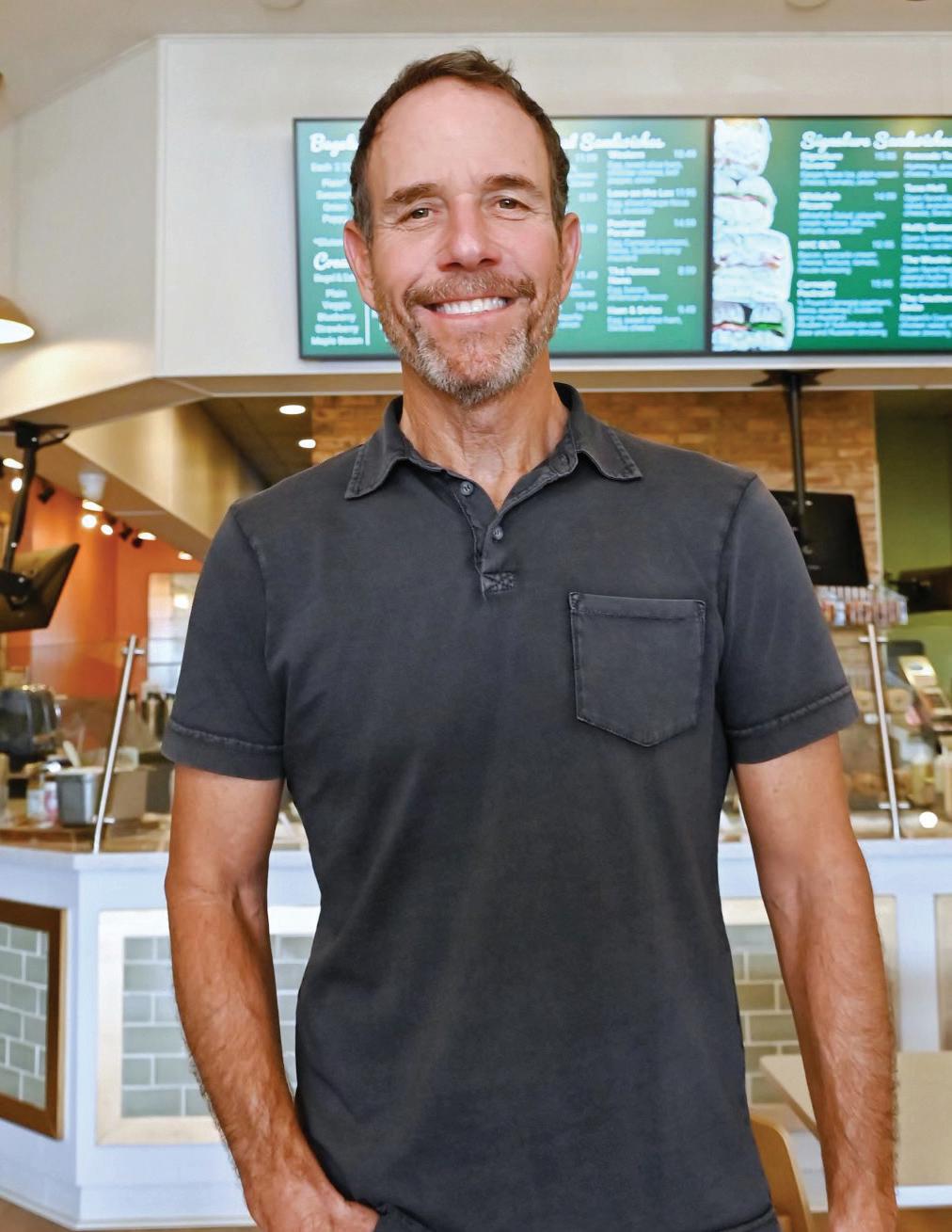
In the restaurant business for 31 years, Stein reminisces about Mike’s Deli on Colley Ave. in Ghent, where the corned beef was sliced to order. “I always had in my mind to bring that back to the area,” he says. And now, he is on his way.
Since Stein was already buying Ess-aBagel bagels for his other restaurants, he approached the owners about opening a local store, and they were willing.
Established in New York City in 1976
“We take great pride in being authentic. A lot of care and love goes into our product,” Stein says.
Stein also serves as president of Baker’s Crust, a chain of restaurants with artisan kitchens, and he owns Virginia Beach’s Quemar wood fired cocina, a casual restaurant serving Latin American and Mexican cuisine.
Since Baker’s Crust Bagel resides next door to CycleBar, an indoor cycling workout studio, Stein added healthier options to the menu. Acai bowls and smoothies add to the assortment (Stein’s favorite is PB Power Up), and he even sources the artisan granola from out-ofstate. “These additions make our bagel store special. We are offering more than a bagel sandwich.” Ten varieties of seltzer-whipped cream cheese, made from fresh ingredients, populate the assortment.
Stein also mentions that customers are grateful for the gluten-free bagels, which come from New Jersey. Although the bagels are pricier to import, Stein wants the offering on his menu at an affordable price.
“A lot goes on behind the scenes that people are unaware of,” he says. Growing pains include adjusting from a full-service operation, like Baker’s Crust restaurants, to the fast-casual model of a bagel store. Kiosks and hand-held ordering devices are available, although customer service
remains a top priority. Some customers, he says, are already returning two, three, and four times each week.

Looking ahead, Stein says he envisions an open drive-thru location as part of an expansion of Baker’s Crust Bagel. As their website proclaims, it’s possible to “escape to a New York state of mind at Baker's Crust Bagel” without ever leaving Tidewater, and perhaps in the future, even without leaving the car.

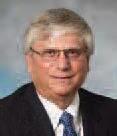



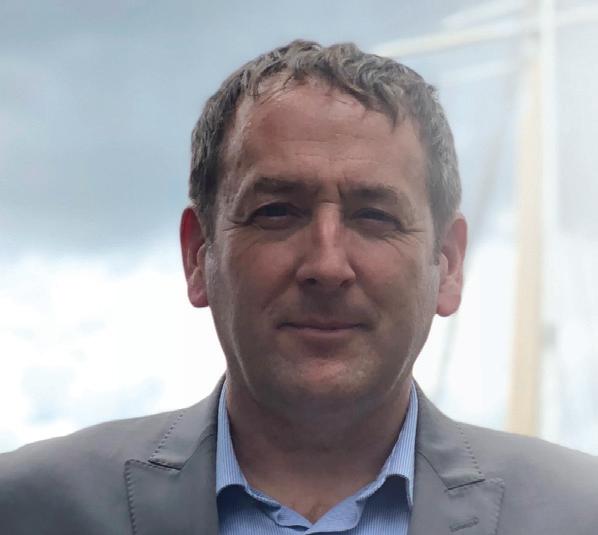
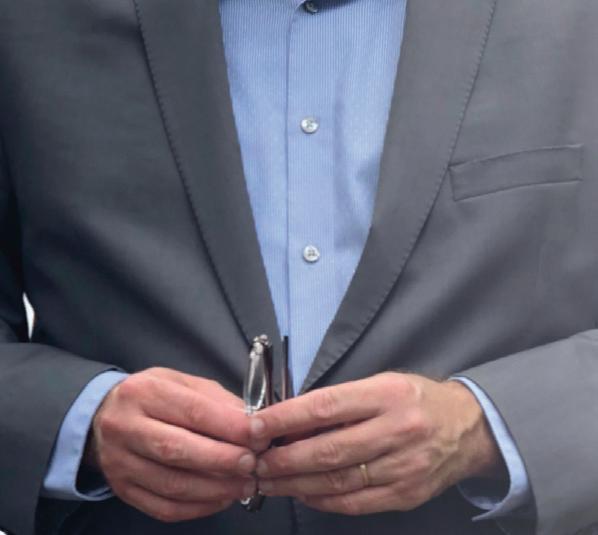


Trey Kelleter represents and advises defendants, witnesses, and victims in federal and state criminal investigations. Put his decades of experience as a trial lawyer and skilled negotiator to work for


Have you considered investing in commercial real estate?
Cohen Investment Group has helped countless investors execute 1031 tax deferred exchanges, while also enabling high net worth individuals, registered investment advisors, and wealth managers to participate in institutional grade investment offerings across the country.



A new study from Stanford University ranks Tel Aviv University (TAU) first in Israel and first in the world outside the United Sates of America in the number of unicorns (privately held startup companies valued at over $1 billion) established by its alumni.
According to the study, led by entrepreneurship researcher Professor Ilya Strebulaev of the Stanford Graduate School of Business, Stanford University is first in the world in the number of unicorns founded by its alumni, and TAU is first outside of the USA with 43 unicorns. The ranking, which counts the total number of unicorns regardless of university size, is based on a dataset of 1,100 startups that have raised more than $1 billion from venture capital funds in the USA.
their own startups, which in the future may become unicorns.”
“We incorporate entrepreneurship into the curriculum”
The new index joins a long series of entrepreneurship rankings, all of which rank TAU as the leader in producing entrepreneurs outside the USA. In 2022, Pitchbook ranked TAU seventh in the world and first outside the USA in the number of venture-capital-backed startups founded by alumni. Startup Genome also ranked TAU among the leading universities, right after Stanford, MIT, Harvard, and UC Berkeley, and first outside the USA.
“Professor Strebulaev’s findings prove once again that TAU is Israel’s entrepreneurial university, nurturing more startups — and specifically more unicorns — than any other university in the country,” says Professor Moshe Zviran, chief entrepreneurship and innovation officer at TAU and former dean of TAU’s Coller School of Management.
“We no longer wait for the ‘magic’ to occur,” Professor Zviran adds. “We incorporate entrepreneurship into the curriculum — in the classic disciplines like computer science, engineering, and management, but also in the faculties of humanities, social sciences, law, and the arts. In fact, most students at TAU can now include an entrepreneurship cluster as an integral part of their studies for a degree, thereby acquiring tools for establishing
“There are many entrepreneurship rankings, each based on different parameters,” Professor Zviran says. “All of them, however, indicate that TAU is the best entrepreneurship incubator in the world outside the USA. We made a strategic decision to position TAU as Israel’s main entrepreneurial university, and proactively buttress our technological and business advantage as a means for producing startups and unicorns. These achievements have been based solely on the outstanding quality of our faculty, students, and curriculum. The focused activities of our Entrepreneurship & Innovation Ecosystem are expected to bring even greater accomplishments.”
Tel Aviv University (TAU) is a globally top-ranked university, a leading research institution, and a center of discovery. As Israel’s largest public institution of higher learning, TAU is home to 30,000 students, including 2,100 international students from over 100 countries. The University
While a large body of previous research suggests that workers who express anger are judged to be competent and hold a high status—resulting in more power and money—a new study by The Hebrew University of Jerusalem and Princeton University researchers debunks this consensus.
In a new study published in Frontiers in Social Psychology, the researchers revisited these claims in U.S. experiments using similar methods as in previous work. In four preregistered, robust studies, the researchers revisited the paradigms that tested whether expressing anger could help a worker gain status in the workplace. Specifically, they asked: do workers gain status when they express anger? Is anger perceived to be a signal of competence? And at the most basic level: do others like anger in the workplace?
“We found that anger isn’t a catalyst for higher status in the workplace,” says Roni Porat, a senior lecturer at Hebrew University in the departments of Political Science and International Relations, who conducted the study along with Elizabeth Levy Paluck of Princeton University. “Moreover, we found that anger is regarded more poorly than other emotional expressions like sadness. The only instance in which anger is considered as positive is when it is expressed in response to another person’s clear wrongdoing. These findings hold for both men and women expressing anger in the workplace.”
The data suggests that even though people assume that individuals expressing anger have higher status, they do not reward the expression of anger with more status because they find anger to be inappropriate, cold, an overreaction, and counter-instrumental for workplace goals. The researchers also found that people hold negative attitudes toward workplace anger expressions, citing them as relatively more harmful, foolish, and worthless compared to other emotional expressions.
“To test the boundaries of our findings, we varied the gender of the worker
expressing the emotion (men or women), the target of the emotional expression (another person, the circumstances), and the context in which the emotion was expressed (job interview, a normal workday, etc.),” Porat says. The study also “varied the workers’ gender to understand whether our findings held for both men and women. This is important given some work demonstrating that women are penalized for expressing anger while men

are rewarded.
“Despite influential studies in this area, we didn’t find that women’s anger is regarded differently than men’s anger,”
Porat says. “At first glance, it seems like these findings contradict a large body of previous work on gender and anger at work. Two possible explanations are that gendered norms of anger expression have changed over time since previous studies were conducted, or that we used different samples compared to previous studies. These two explanations seem unlikely.”
The Hebrew University of Jerusalem is Israel’s premier academic and research institution. Serving more than 23,000 students from 80 countries, the university produces nearly 40% of Israel’s civilian scientific research and has received more than 11,000 patents. Faculty and alumni of the Hebrew University have won eight Nobel Prizes and a Fields Medal.

Most people know or have heard that a Donor Advised fund at Tidewater Jewish Foundation offers the convenience of a one-stop-shop. Cash (or, ideally, appreciated stock) tax-deductible contributions are made to the fund, and then the fund’s owner recommends grants to favorite charities. The team at TJF works with each fund holder to make certain they’re leveraging their Donor Advised fund to execute the full range of charitable giving each year, making it easier to keep track of where the money is going and how much over time.
No matter when a Donor Advised fund was established at Tidewater Jewish Foundation (whether it was years ago, or more recently) a new option to establish a Donor Advised fund makes it possible to involve children and grandchildren in philanthropic priorities.
Whatever the case, it’s wise to consider a few best practices for ensuring that a Donor Advised fund makes the most significant difference possible for the
causes important to the donor. Life gets busy, months fly by, and putting a Donor Advised fund on autopilot is tempting. But that would be a missed opportunity.
While TJF makes it easy to use Donor Advised funds for annual giving to charities, that’s not all it does. TJF’s team offers myriad ways to support philanthropic activities.
TJF can help establish a designated fund to support
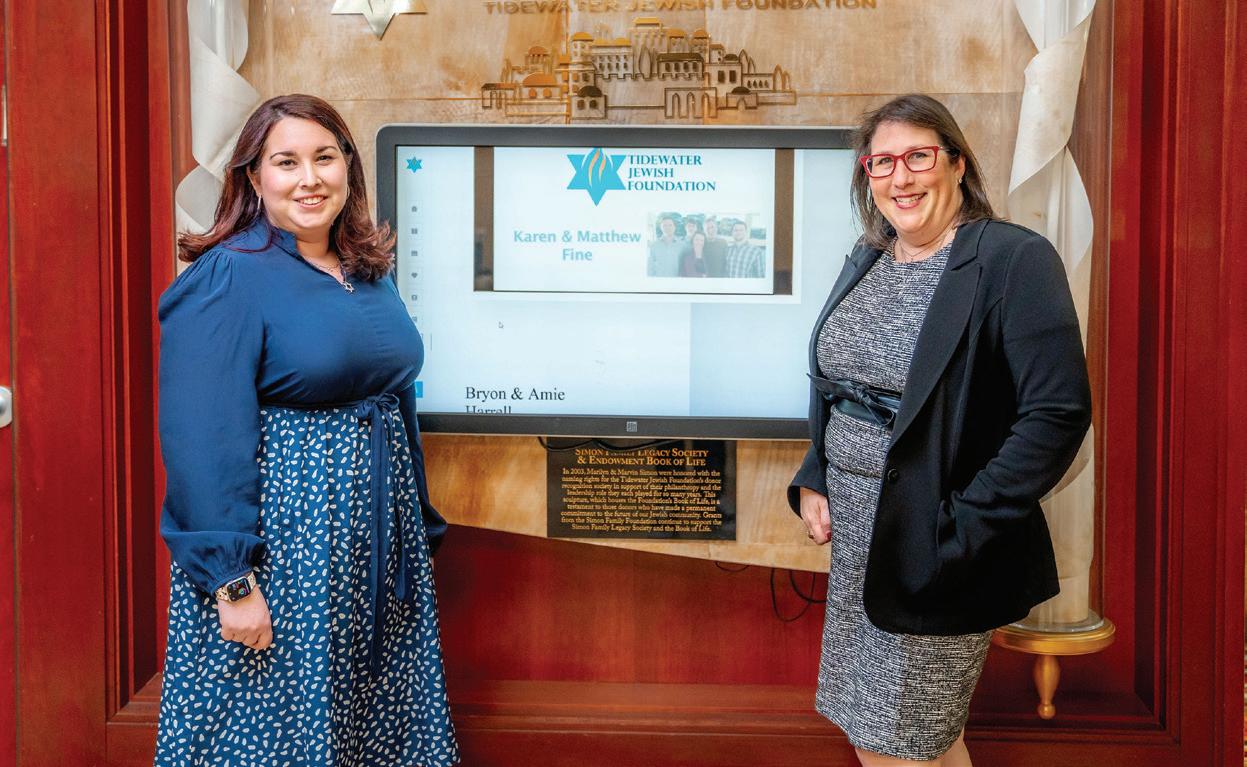

"Recently my mother required 12 hour per day personal care assistance. On short notice, Changing Tides Home Care provided the necessary assistance. They have been responsive to my mother's needs and have kept the family informed by telephone, text and portal. I am very pleased with their services.”
-Andrew H. Hook, President of
Hook Law Center
a specific charity long-term or a field-of-interest fund to focus on an area of community need. For those over 70½, it is possible to contribute up to $105,000 annually from an IRA to these restricted or permanent endowed funds, avoiding taxable income.
Funds may also be included in estate plans. Many fundholders name their Donor Advised funds, field-ofinterest funds, or TJF itself as beneficiaries in their wills or IRAs, providing tax benefits and creating a legacy.
In addition, TJF’s deep knowledge of local nonprofits, programs, and initiatives helps donors become more informed and effective philanthropists. This ensures that a donor’s giving makes a measurable impact and enhances their experience of charitable giving.
TJF’s team is ready to help make the most of Donor Advised funds and related strategies so that donors can put their money to work improving the community’s quality of life and achieve financial and philanthropic goals for their overall charitable giving.
For more information on how Tidewater Jewish Foundation can help with charitable planning, contact Naomi Limor Sedek, TJF president and CEO, at 757-965-6109 or nsedek@tjfva.org.

